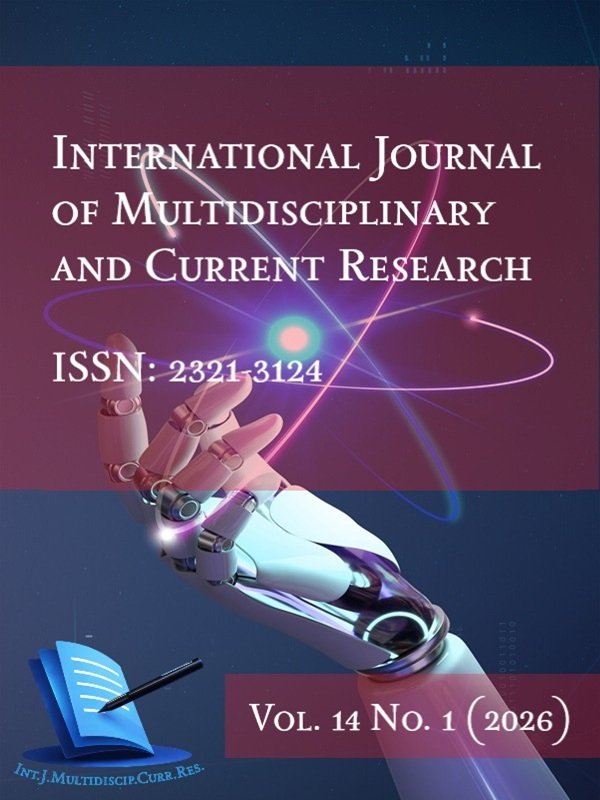About the Journal
Current Issue

The International Journal of Multidisciplinary and Current Research, Volume 14, Issue 1 (2026), presents a diverse collection of scholarly articles reflecting recent advancements across science, engineering, management, social sciences, and applied research. This issue highlights innovative methodologies, interdisciplinary perspectives, and contemporary problem-solving approaches that address real-world challenges. Contributions emphasize analytical rigor, originality, and practical relevance, offering valuable insights for researchers, academicians, and industry professionals. By fostering cross-disciplinary dialogue, this issue strengthens the journal’s commitment to disseminating high-quality research that supports knowledge development, technological progress, and sustainable solutions in a rapidly evolving global academic environment. Read More

